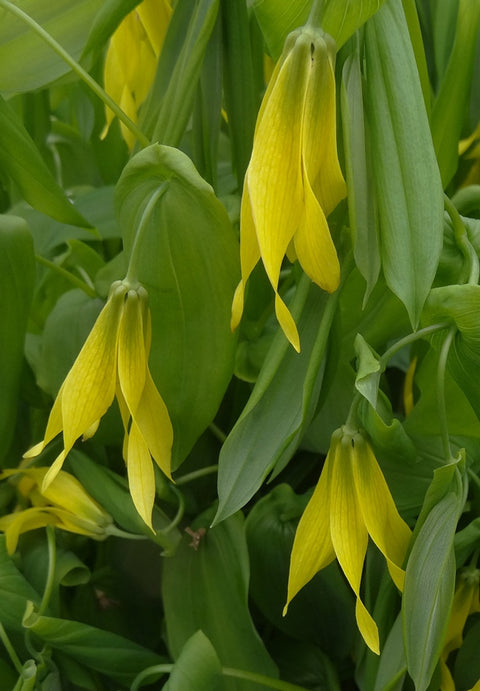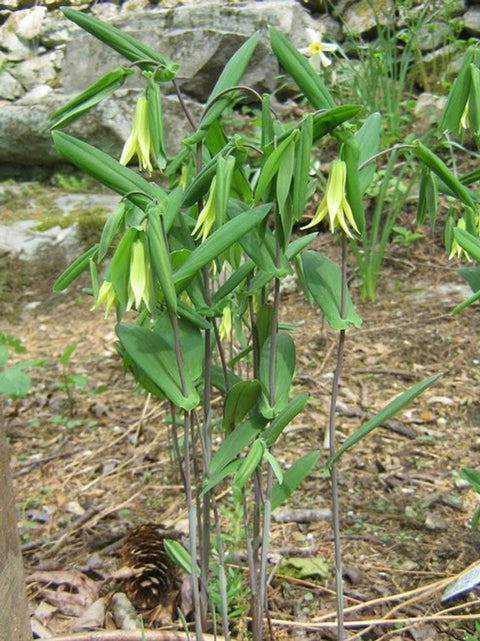About Bellwort
Bellwort (Uvularia spp.) is a native woodland perennial with nodding, bell-shaped flowers and a simple, understated elegance. Its graceful, arching stems are topped with soft yellow blooms that hang like tiny lanterns beneath the plant’s smooth, alternate leaves. Bellwort is a perfect plant for those who want to add a touch of wild, natural beauty to shaded garden areas.
When do Bellwort bloom?
Blooming in mid to late spring, bellwort is at home in rich, moist, deciduous forests of eastern North America. Many species have perfoliate leaves, which means that the stem runs through the leaf rather than simply at the base. The plant’s nodding flowers are delicate-looking but tough, dancing in the breeze with no harm done. After a few weeks of bloom, its foliage will often fade back to make room for later-season perennials.
Is Bellwort good for novice gardeners?
Bellwort is a great plant for gardeners who are interested in extending the season of interest in their shade or woodland gardens. Bellwort is one of the early-season spring ephemerals, emerging from its underground rhizome along with other woodland wildflowers such as trillium, bloodroot, and Solomon’s seal. By blooming early, before the deciduous tree canopy leafs out, bellwort takes full advantage of the bright, indirect light of early spring. Although the plant will have mostly faded by the height of summer, its spring blooms are a real treat in the garden.
Native pollinators can benefit from the addition of bellwort to your native plantings. Bellwort flowers produce nectar and make an important early-season food source for bees and other insects. The plant is easy to grow and very low-maintenance, as long as it is planted in its preferred conditions: humus-rich, well-drained soil with consistent moisture, and some degree of shade to partial sun. Deer and rabbits typically do not bother bellwort, and while the plant does not necessarily spread rapidly, it should naturalize slowly over time. Bellwort will work well with other shade-loving natives, offering a quiet but authentic beauty to a naturalized garden.



